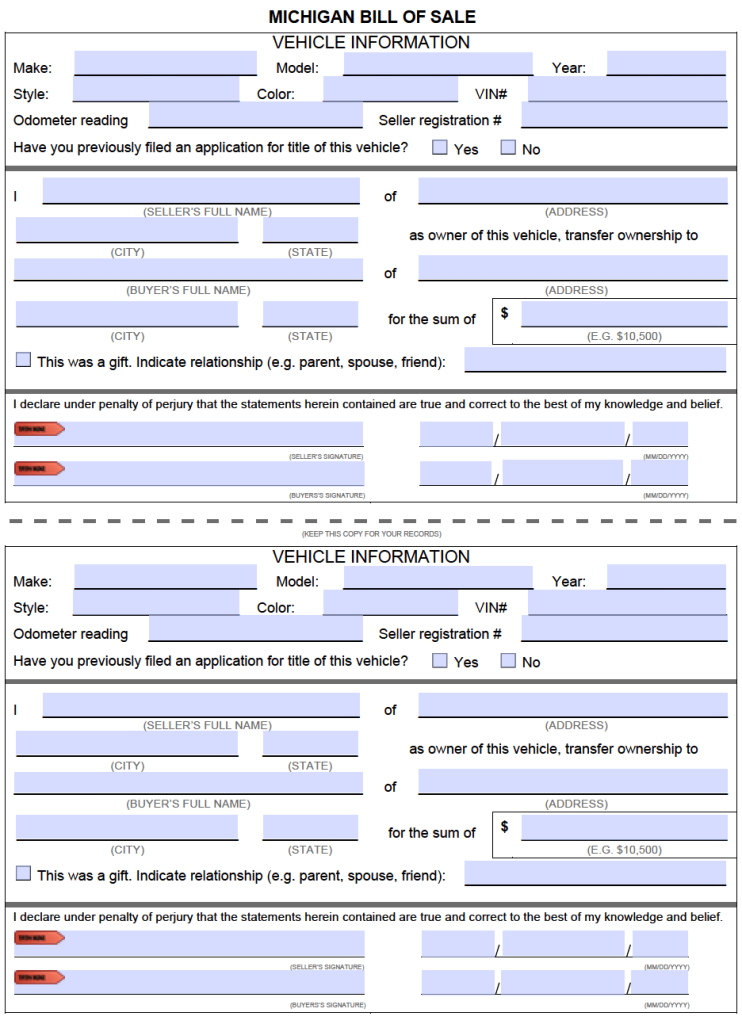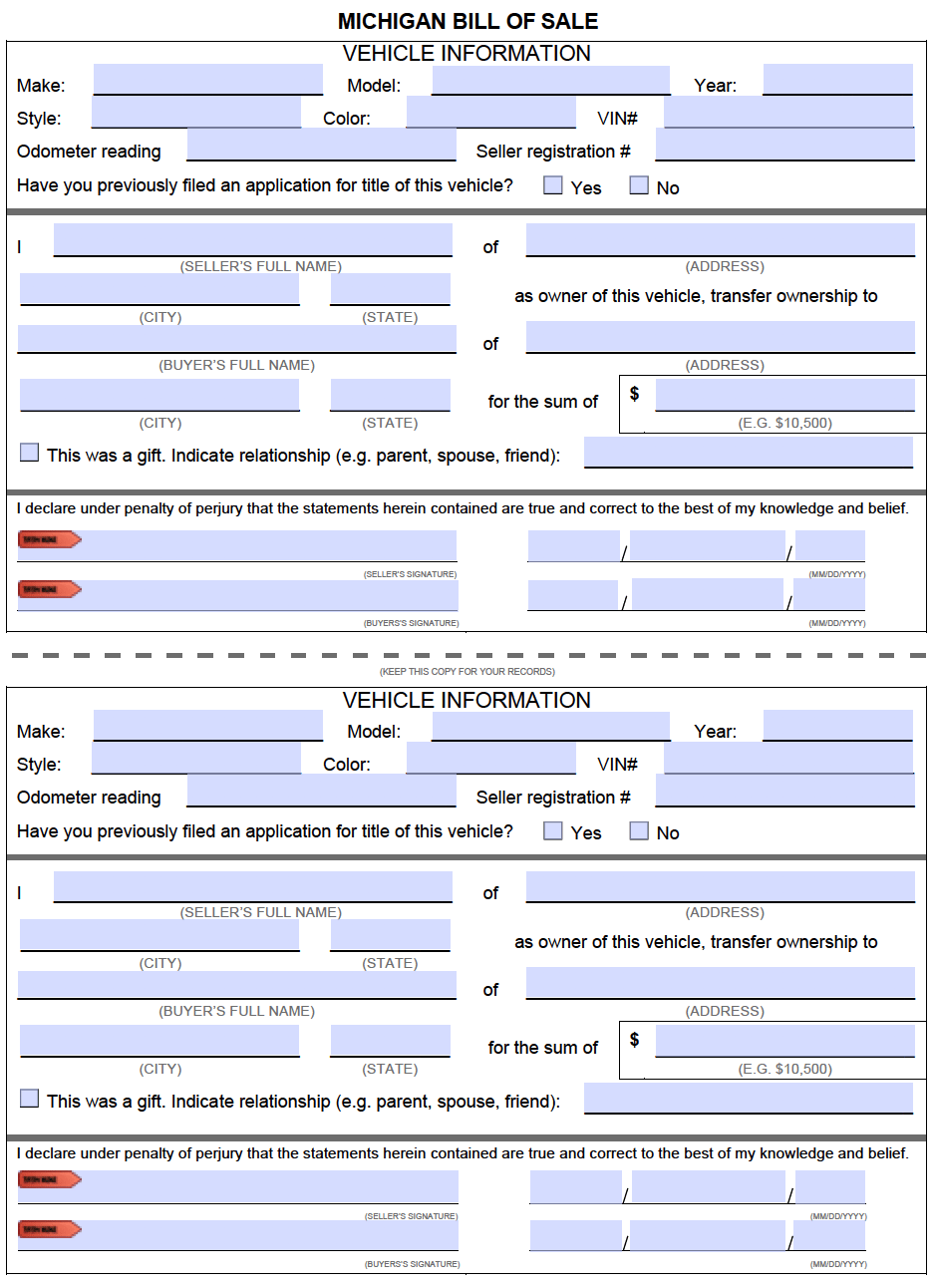How to Register a Vehicle
You have 15 days to register your vehicle from the time of sale and are allowed to legally operate the vehicle without plates for the first 3 days (the signed-over title acts as sufficient proof in case you get pulled over). The secretary of state encourages the buyer and seller involved in a private sale to appear at an SOS office to avoid glitches in the registration process. If the new owner cannot register in person, they must have a designated agent appear with a valid Power of Attorney form (Form TR-128) and photocopy of their ID. Remember to bring the following paperwork to a Secretary of State location near you:
- You must present the original title signed over to you from the previous proprietor. The title must contain:
- Current Mileage (if there is no room to record an odometer reading, the buyer and seller must complete and sign an Odometer Mileage Statement – Form BVDR-108)
- Signatures from Both Parties
- The lienholder must sign the title if the vehicle contains an active lien.
- VIN Number
- Proof of “no-fault insurance” (no-fault insurance covers any damages or injuries caused by a vehicular collision, no matter who is at fault).
- A standard form of identification.
- Payment for the registration/titling process (fees may differ).



